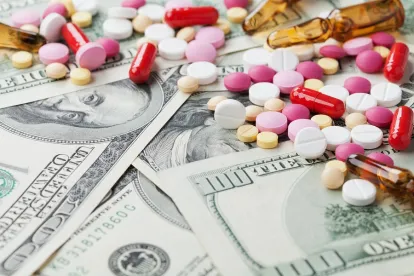A U.S. Senate committee reported Monday (Feb. 12, 2018) that the five largest opioid manufacturers paid more than $10 million directed in particular to patient advocacy groups and professional medical societies who would then encourage the use of those highly addictive drugs.
In a 23-page report released by Senate Homeland Security and Governmental Affairs Committee, Sen. Claire McCaskill (D-Mo.), the ranking Democrat on that Committee, called these groups opioid "cheerleaders." The committee has been investigating the financial ties between the pharmaceutical industry and outside groups from 2012-17. In particular, the committee has been looking into Purdue Pharma, Janssen Pharmaceuticals, Mylan, Depomed and Insys Therapeutics and 14 patient advocacy groups.
U.S. News & World Report reported, "It looks pretty damning when these groups were pushing the message about how wonderful opioids are and they were being heavily funded, in the millions of dollars, by the manufacturers of those drugs," Lewis Nelson, a Rutgers University doctor and opioid expert, told The Center for Public Integrity.
Purdue, which was the largest donor to outside advocacy groups took out a full-page ad in the front section of USA Today in the same edition that reported this story. In an effort to fight the bad publicity coming out of the Senate, Purdue wrote, "We manufacture prescription opioids. How could we not help fight the prescription and illicit opioid abuse crisis?" It went on to talk about how the company was founded in 1892 by two doctors and its "strong heritage of a research-driven, science-based company. ... Today, it's what has spurred us to redouble our efforts in the fight against the prescription and illicit opioid abuse crisis."
The Senate committee reported that the largest recipients of the pharma money was the U.S. Pain Foundation, the National Pain Foundation and the Academy of Integrative Pain Management, organizations which promote opioids as safe and effective for treating chronic pain and minimizes the risk of addiction. The money reportedly was used to send out "opioid-friendly messaging" to undercut state and federal efforts to curb opioid prescribing.
Although Purdue also said that it is cutting its sales force in half to 200 people who make doctors' offices visit to pitch opioids, McCaskill said that this is but "the tip of the iceberg" in how drug companies themselves with their large profits shape health care policy and even legislation.
Multiple states, cities and counties across the U.S. have issued lawsuits against the leading pharmaceutical companies for downplaying the risks involved with prescribing opioids and thus fueling the opioid epidemic, which accounted for at least 42,000 deaths in 2017 alone.



 />i
/>i

